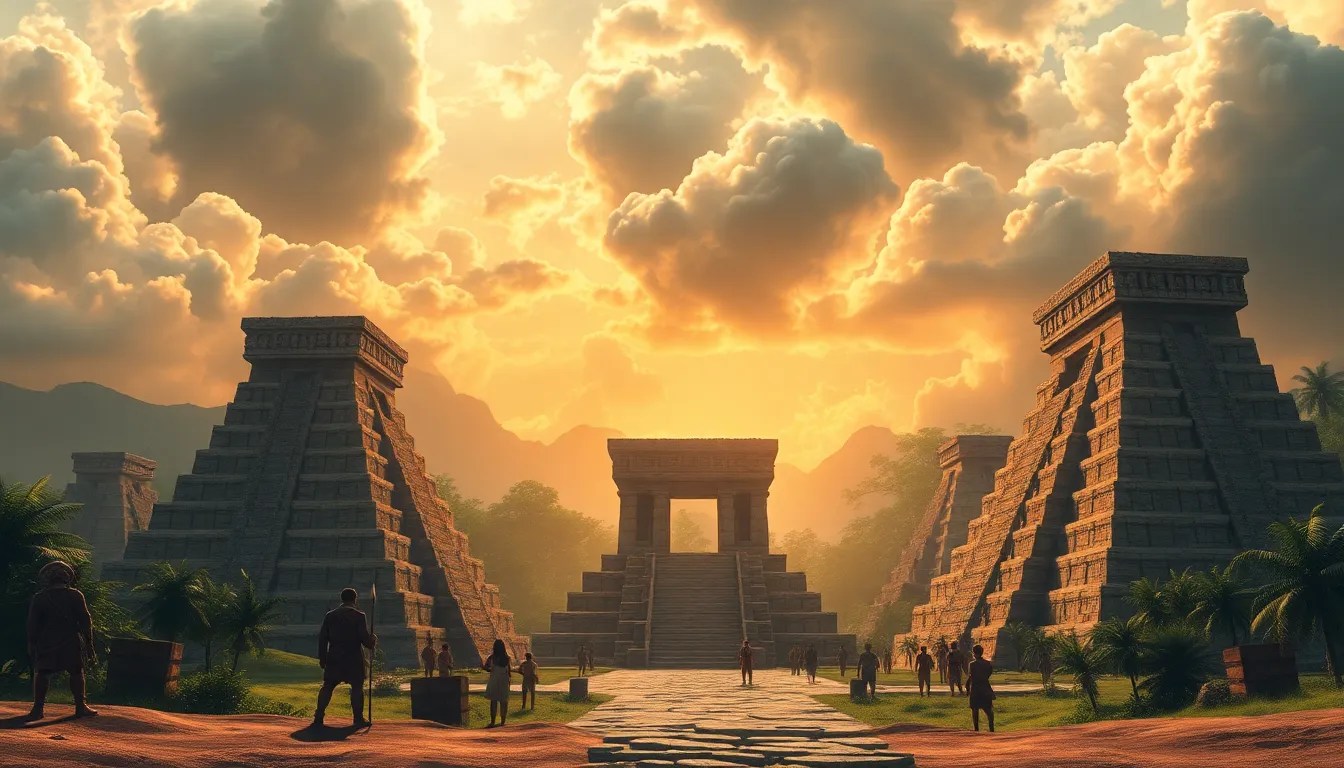Mayan Legend: The First People and Their Connection to the Gods
I. Introduction
Mayan mythology is a rich tapestry of stories, beliefs, and practices that shaped the ancient Maya civilization. These myths are not merely tales but are fundamental to understanding the Mayan worldview, their relationship with the cosmos, and the divine. One of the central themes in Mayan mythology is creation, particularly the story of the first people and their connection to the gods.
The legends surrounding the creation of humanity reveal the importance of the gods in Mayan culture. They illustrate how these deities not only shaped the world but also directly influenced the lives of the Maya, guiding them through rituals, agriculture, and social order.
II. The Creation Myth: The Birth of the First People
At the heart of the Mayan creation stories lies the Popol Vuh, a sacred text that serves as a primary source for understanding the mythology of the Maya. This text recounts the creation of the world and the attempts of the gods to create humanity.
Initially, the gods attempted to create life from mud and then from wood. However, these creations failed to meet the expectations of the gods. It was only through the use of maize, a sacred crop, that the gods successfully made the first true humans. This reflects the deep agricultural roots of Mayan society and the reverence they held for maize.
III. The Role of Tepeu and Gucumatz
Tepeu and Gucumatz are the principal creator gods in Mayan mythology, often depicted as wise and powerful figures. Their dialogue is crucial to the creation narrative, showcasing their collaborative nature in the divine act of creation.
- Tepeu: Represents the sky and is associated with thought and creativity.
- Gucumatz: Symbolizes the earth and is linked to the material world.
Through their discussions, they pondered the purpose of creation, ultimately deciding to create beings that could worship and honor them. This dialogue highlights the importance of communication and intention in the creative process.
IV. The First Humans: Wood, Maize, and Redemption
The initial attempts to create humans from wood resulted in beings that lacked soul and emotion. These wooden people were soulless, unable to worship their creators, leading to their destruction. This failure served as a cautionary tale about the consequences of inadequate creation.
Eventually, the gods succeeded in creating humans from maize, endowing them with intelligence, emotions, and the capacity for reverence. This act not only signified the importance of maize in Mayan culture but also the divine qualities bestowed upon humanity:
- Intelligence
- Emotional depth
- Spiritual connection
V. The Connection Between the First People and the Gods
The relationship between the first humans and the gods was characterized by guidance and protection. The gods played a significant role in the daily lives of the Maya, influencing agricultural practices, societal norms, and spiritual rituals.
Rituals and offerings were integral in maintaining this connection. The Maya believed that by honoring their gods through ceremonies and sacrifices, they could ensure prosperity and balance in their lives. This relationship also emphasized the concept of ancestry, where individuals saw themselves as descendants of divine beings, forging a strong link between the mortal and celestial realms.
VI. Cultural Reflections: How Legends Shape Identity
The impact of creation myths extends beyond mere storytelling; they shape the identity of the Mayan people. Through the narrative of the first people, the Maya understood their place in the cosmos and the responsibilities that came with it.
The legacy of these creation myths continues to resonate in contemporary Mayan identity, influencing cultural practices, social structures, and spiritual beliefs. When compared to creation myths in other cultures, such as those from the Abrahamic traditions or Hinduism, the Mayan stories emphasize a cyclical view of life and a profound connection to nature.
VII. Modern Interpretations and Rediscoveries
In recent years, there has been a resurgence of interest in Mayan mythology, driven by a desire to rediscover cultural heritage and identity. Contemporary retellings and adaptations of the creation story highlight its relevance in today’s world.
Archaeology and anthropology have played crucial roles in understanding these legends, uncovering artifacts, and texts that provide deeper insights into Mayan beliefs. This scholarly work has helped bridge the gap between ancient practices and modern interpretations, fostering a renewed appreciation for Mayan culture.
VIII. Conclusion
The connection between the first people and the gods in Mayan mythology serves as a profound narrative that encapsulates the essence of Mayan spirituality and culture. These myths are not only historical accounts but also living stories that continue to influence contemporary life.
As we reflect on the enduring legacy of these creation myths, it becomes evident that they offer valuable lessons about identity, reverence, and the interconnectedness of life. The exploration of Mayan mythology invites us to delve deeper into the richness of these legends and their significance in both ancient and modern contexts.



